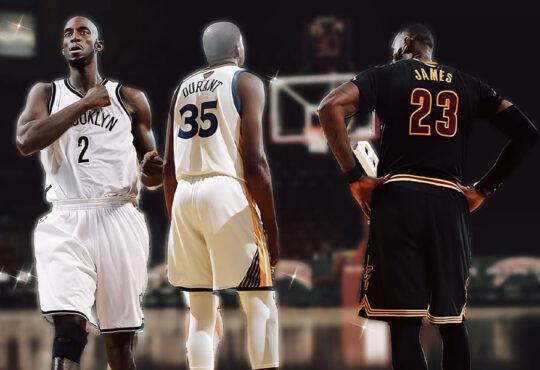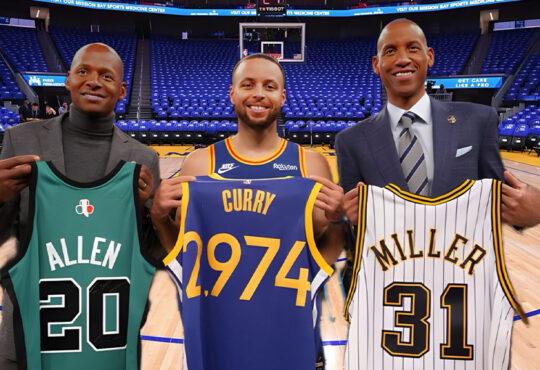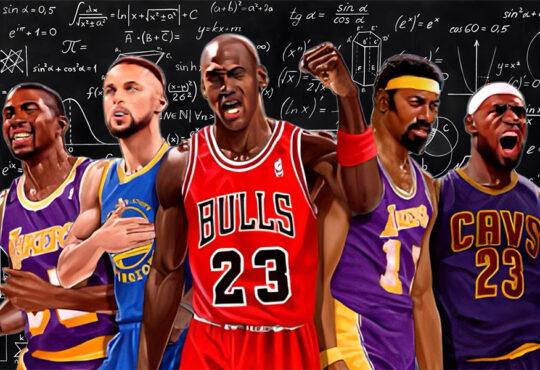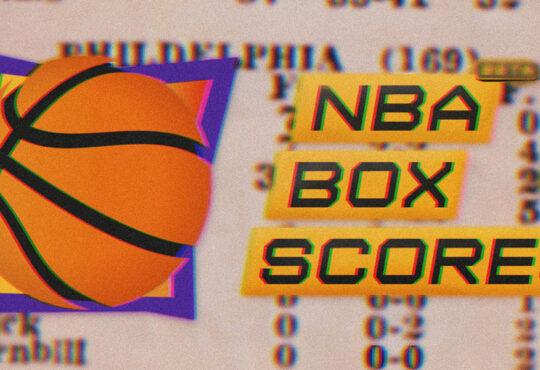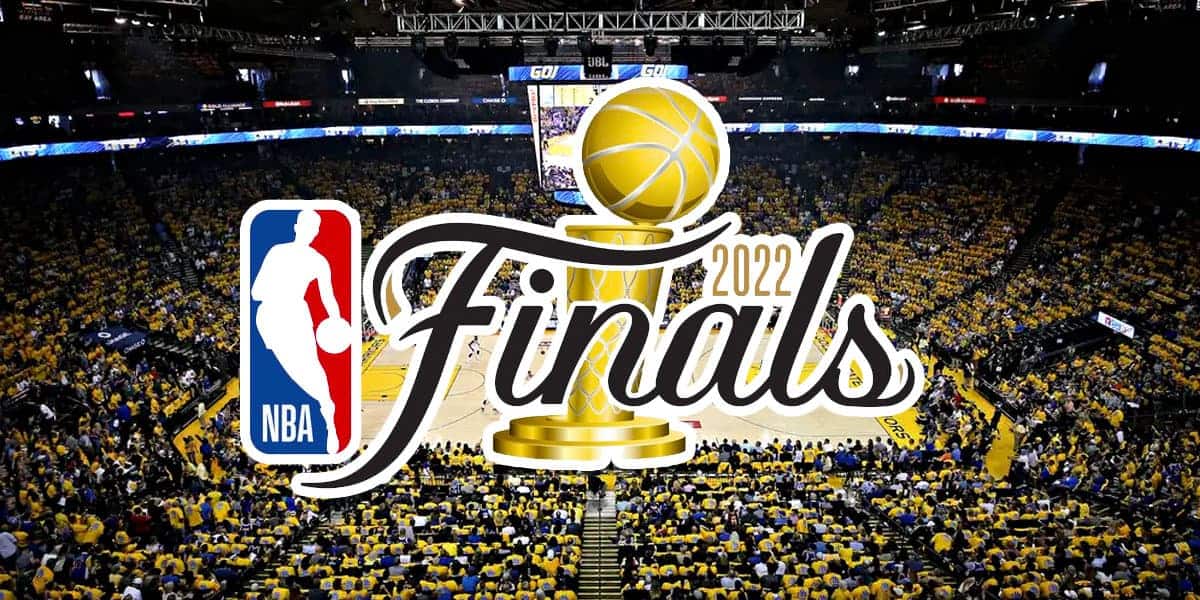
What is the NBA finals format?
What is the NBA finals format? The NBA Finals is the annual championship series of the NBA. The Eastern and western conference champions play a best-of-seven game series to determine the NBA champion. The team that wins the series is awarded the Larry O’Brien Championship Trophy, which replaced the original Walter A. Brown Trophy in 1977.
The series was initially known as the BAA Finals prior to the 1949–50 season when the BAA merged with the NBL to form the NBA. The competition oversaw further name changes to NBA World Championship Series from 1950 to 1985, as well as a brief stint as the Showdown, before settling on NBA Finals in 1986. Since 2018, it has been officially known as the NBA Finals presented by YouTube TV for sponsorship reasons.
The NBA Finals were initially structured in a 2–2–1–1–1 format. In 1985, to ease the amount of cross-country travel, it was changed to a 2–3–2 format, where the first two and last two games of the series were played at the arena of the team who earned home-court advantage by having the better record during the regular season.
In 2014, the 2–2–1–1–1 format was restored. This team hosts the first two games and the other team hosts the next two games. If needed, the remaining three are played at each team’s home arena alternately.
A total of 19 franchises have won the NBA Finals. The Los Angeles Lakers and the Boston Celtics hold the record for the most victories, having both won the competition 17 times. The Boston Celtics also won the most consecutive titles, winning eight in a row from 1959 to 1966. The Los Angeles Lakers have contested the NBA Finals the most times, with 32 appearances. The Eastern Conference has provided the most champions, with 38 wins from 10 franchises while the Western Conference has 34, from nine franchises.
1946–1956: Beginnings and Lakers dynasty
The beginning era of modern professional basketball was dominated by the Minneapolis Lakers, who won half of the first ten titles. The Philadelphia Warriors also won multiple championships, including the inaugural title in 1947 and another in 1956 to bookend the NBA’s first decade. After being founded in 1946, the Basketball Association of America completed its inaugural season in April 1947 with the Philadelphia Warriors defeating the Chicago Stags in five games. The following season the Warriors would again reach the Finals, however, they would fall short to the now-defunct Baltimore Bullets. To date, the Baltimore Bullets are the only defunct team to win a championship.
In 1948 the Minneapolis Lakers would win the championship of the rival National Basketball League before joining the BAA. Led by future Hall of Famer George Mikan, the Lakers would win the third and final BAA championship in 1949 over the Red Auerbach-coached Washington Capitals. The Lakers would win the inaugural NBA championship in 1950 to become the first team to repeat as champions.
In 1951 the Rochester Royals defeated the New York Knicks in the only Finals contested between two teams from the same state. This would be the first of three consecutive losses in the Finals for the Knicks, as they would lose the 1952 and 1953 Finals to the Lakers.
The Lakers would win again in 1954 to become the first team to three-peat. This would be the fifth championship in six years for the Lakers and their last title won in Minneapolis. In 1955 the Syracuse Nationals would win their only title before becoming the Philadelphia 76ers, and in 1956 the Warriors won their second and last title in Philadelphia before eventually moving to California.
1957–1969: Celtics dynasty
The Boston Celtics went 11–1 in the NBA Finals during 12 seasons from 1956–57 to 1968–69. They won eight straight NBA championships from 1959 through 1966. This period marks the largest stretch of seasons that a single team made up over 65% of Finals appearances, and also includes the only time the NBA Finals was decided in double overtime.
In the 1966-67 season, Philadelphia coach Alex Hannum instructed Wilt Chamberlain to provide an increased focus on playing a team game, to avoid drawing the double-teams that troubled Chamberlain during the Finals. This tactical change brought the team to a new record of 68 wins the following season, as well as defeating the Celtics before winning the 1967 Finals.
In 1968, Boston overcame a 3–1 deficit against Philadelphia to once again arrive in the Finals. They went on to defeat the Los Angeles Lakers in the Finals to again become NBA champions.
In 1969, despite holding a 2–1 advantage going into Game 4, the Lakers led 87–86 and had the ball with 10 seconds to play. But after a turnover, Sam Jones scored to give the Celtics a narrow 88–87 win and tie the series. The series was eventually tied 3–3 going into Game 7 in Los Angeles. The Celtics held off a furious Lakers comeback to win 108–106 and win the series, and win their eleventh championship in 13 years.
1970–1979: Decade of parity
The 1970s saw ten different teams reach the Finals and eight different teams win a championship, the most of any decade in the NBA, with the Celtics and New York Knicks winning twice.
In 1970, the New York Knicks won their first-ever NBA championship defeating the Lakers 4-3 in the finals. Next year, the Milwaukee Bucks also won their first title, defeating the Baltimore Bullets in 1971.
The following season, the Lakers set an NBA record with 33 straight wins and won their first NBA championship since moving to LA.
In 1973, the Knicks won their second, and to this day, the last NBA championship. Despite the rise of the Knicks, the 1974 championship returned to the Celtics.
After compiling a 48–34 regular-season record, the Golden State Warriors swept the Washington Bullets 4–0 in the 1975 NBA Finals. In 1976, the Phoenix Suns made it to their first NBA Finals but lost to the Celtics in 6 games.
Other franchises that won their first titles in the 1970s included the Portland Trail Blazers in 1977, and the Washington Bullets, which defeated the SuperSonics in 1978. The SuperSonics managed to exact revenge on the Bullets the following season, as they won their first title in 1979.
1980–1990: Celtics–Lakers rivalry and “Bad Boys” Pistons
From 1980 to 1990, the Lakers won five titles (1980, 1982, 1985, 1987, and 1988), the Celtics won three (1981, 1984, and 1986), and the Pistons won twice (1989 and 1990) and the 76ers won once (1983).
Magic Johnson was the new leader for the Lakers winning the championship in his rookies season in 1980 and winning 4 more. His biggest rival Larry Bird led the Celtics to three titles and Isiah Thomas led the Pistons to two consecutive wins at the end of the decade. Julius Erving and Moses Malone led the Sixers to the title in 1983.
1991–1998: Bulls dynasty
The majority of the 1990s was marked by the supremacy of the Chicago Bulls. The Bulls, led by head coach Phil Jackson and star players Michael Jordan and Scottie Pippen, won six titles in six Finals appearances from 1991 to 1998. The only other team to win a title during this time was the Houston Rockets who won titles in 1994 and 1995, during Jordan’s first retirement from professional basketball to play baseball.
1999–2010: Lakers and Spurs’ dominance
The Los Angeles Lakers and San Antonio Spurs combined to win nine NBA Championships during this period, representing the Western Conference every year except 2006.
The Spurs were responsible for winning four championships during this time, in 1999, 2003, 2005, and 2007. Tim Duncan was the leader of the team during all 4 championship seasons pairing with David Robinson for the first two and with Tony Parker and Manu Ginobili for the third and the fourth.
The Lakers won three consecutive titles at the beginning of the decade led by Shaquille O’Neal who was in his prime and the young and emerging Kobe Bryant. Bryant led the team to two titles in 2009 and 2010.
The 2003-04 season saw the Detroit Pistons winning the championship with a 4-1 win over the Lakers in the Finals series. After that, O’Neal left the Lakers and won another championship with the Miami Heat in 2006.
In 2008, the Boston Celtics won their first NBA championship after 1986.
2011–2014: Heatwave
During the 2010 off-season, the Miami Heat re-signed team captain Dwyane Wade and added free agents LeBron James and Chris Bosh to form their Big Three. The Heat was then considered the favorites by many to win multiple championships. They appeared in the next four finals, winning two in 2012 and 2013.
The Heat’s second appearance in the Finals came in 2011, where they were pitted against the Dallas Mavericks in a rematch of the finals from five years earlier. The Mavericks, led by Dirk Nowitzki, Jason Terry, Tyson Chandler, and Jason Kidd, won the series 4–2, with Nowitzki being named the Finals MVP.
The Heat returned to the finals in the following year against an Oklahoma City Thunder team featuring future MVPs Russell Westbrook, James Harden, and 3-time NBA scoring leader Kevin Durant. After the Thunder won Game 1 at home, the Heat won four straight games to win the series 4–1, becoming the first team to win a championship after trailing in three playoff series.
The Heat repeated as champions in 2013, this time over the San Antonio Spurs who “returned the favor next season”.
2015–present: Warriors dynasty
The Golden State Warriors reached the NBA Finals in five straight seasons from 2015 to 2019, winning in 2015, 2017, and 2018. All three wins and the 2016 loss were against the Cleveland Cavaliers. They became the first two teams to meet in four consecutive Finals.
In 2016, the Cleveland Cavaliers become the first team in NBA history to win the championship after trailing 3-1 in the Finals series.
In the 2016 off-season, the Warriors acquired Kevin Durant through free agency. After finishing 67–15 (the first team to win 67+ games in three straight seasons), they returned to the Finals with a 12–0 sweep of the West, the first team to do so since 2001.
The Cavaliers slipped to the second seed going into the playoffs, but they only lost one game en route to the 2017 NBA Finals, setting up a third straight match with the Warriors. The Warriors started strong with a 3–0 lead over the Cavs, eventually winning the series in five games with Durant being named Finals MVP.
The Warriors set a playoff record of 15 consecutive wins and a 16–1 final record, as well as a 13.5-point differential in the Finals.
The Cavaliers traded away Kyrie Irving in the 2017 off-season and continued to change their roster throughout the season, while the Warriors largely remained intact. Neither Cleveland nor Golden State earned the top playoff seed in the 2017–18 season, and both teams fell to 3–2 deficits in the Conference Finals, but both came back to win the series and ensure a fourth consecutive Finals matchup in 2018. The Warriors swept the Cavaliers 4–0, and Durant was again named Finals MVP.
The Warriors continued their success and reached their fifth straight Finals in 2019, becoming the first team since the 1960s Celtics to make it to five straight Finals, and the first Western Conference team to ever do so. However, after injuries to both Kevin Durant in Game 5, and Klay Thompson in Game 6 of the NBA Finals, the Warriors were defeated by the Toronto Raptors 4–2, resulting in the Raptors’ first championship and the first NBA title for a team-based outside the United States. The Raptors’ Kawhi Leonard was named Finals MVP, becoming the first player to win the award while representing teams from both conferences, having previously won it with the San Antonio Spurs in 2014.
The COVID-19 pandemic had a significant impact on the following two seasons. The 2019–20 NBA season was suspended in March 2020 and resumed on a shortened schedule in July 2020 inside the NBA Bubble in Orlando, Florida.
The Los Angeles Lakers and Miami Heat met in the 2020 NBA Finals, marking the first time in NBA history that two teams that missed the playoffs the year before met in the Finals, and the first time that the NBA Finals were played at a neutral site with no spectators. The Lakers won the series 4–2, claiming their 17th title to tie the Boston Celtics’ franchise record. LeBron James was named Finals MVP for the fourth time in his career, becoming the first player to win the award with three different franchises.
The 2021 NBA Finals saw the Milwaukee Bucks defeat the Phoenix Suns in a series that marked the first Finals since 1971 to feature no players who had previously won a championship. Giannis Antetokounmpo earned Finals MVP honors.

